Like most mammals, when the weather gets hot, cats use different methods to stay cool. That’s especially true for cats with thick coats of fur, but any cat can overheat and need to cool down if the situation gets too hot. Not surprisingly, cats use several methods to cool down when they get hot, including licking their fur, something many cat parents mistake as grooming.
Cats also sweat, but only from their paws. Like dogs, cats use panting to keep cool (but not nearly as often). Knowing that your average cat has several methods to stay cool, you might have other questions. For example, how can you tell if your cat is too hot or overheating, and what’s the fastest way to cool down an overheated cat? If you’re curious as a kitten to find out and get more useful info on helping your cat keep cool, read on.
How Can You Tell if Your Cat Is Too Hot?
Since cats can’t tell you they’re too hot, you need to know the warning signs and symptoms to help them if they start overheating. Most are relatively easy to spot, but it helps to know what to look for, especially when temperatures start to soar where you live. Knowing what to look for can also save your cat’s life in a heat-related emergency.
- Lethargy
- Panting
- Restlessness
- Vocalizing
- Your cat is stumbling
- Your cat’s ears are hot
- Their gums are a dark shade of red
An overheated cat will also have a high temperature and might have a rapid heartbeat, but both of these signs would be difficult to detect unless you were looking for them specifically and had a thermometer and a stethoscope (and some veterinary training).
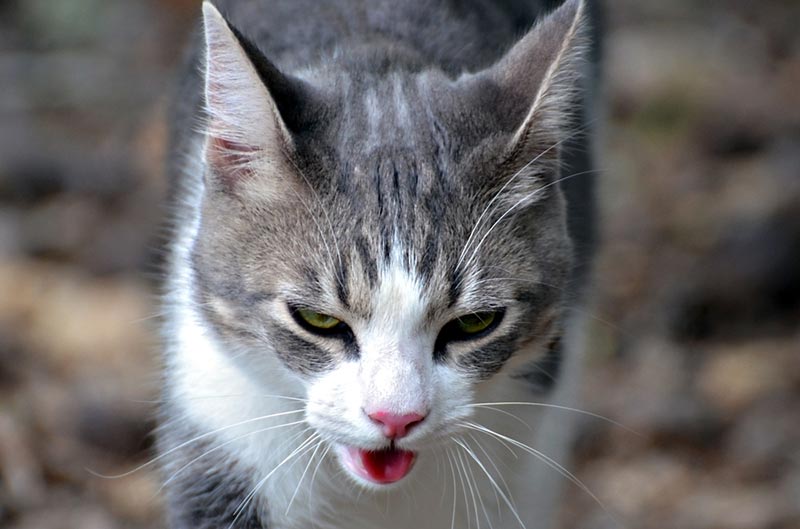
 What’s the Fastest Way to Cool Down an Overheated Cat?
What’s the Fastest Way to Cool Down an Overheated Cat?
If you’ve detected that your cat is overheated and suffering from a heat-related health problem, cooling them down quickly yet safely is a must. The following methods will help you cool down your cat without causing them more stress.
1. Bring Your Cat Inside
If yours is an outdoor cat, bringing it inside your cool, air-conditioned home is one of the fastest ways to cool them down and prevent further damage to their health.
3. Rinse Your Cat With Cool Water
A cat in real trouble from the heat can be cooled off quickly with cool (not ice-cold) water. Water straight from the tap might work if it’s not too cold, but room-temperature water is best so that you don’t cause your cat even more trauma. You should note that it’s never a good idea to put ice on your cat to cool them off, which can be very traumatic for some.
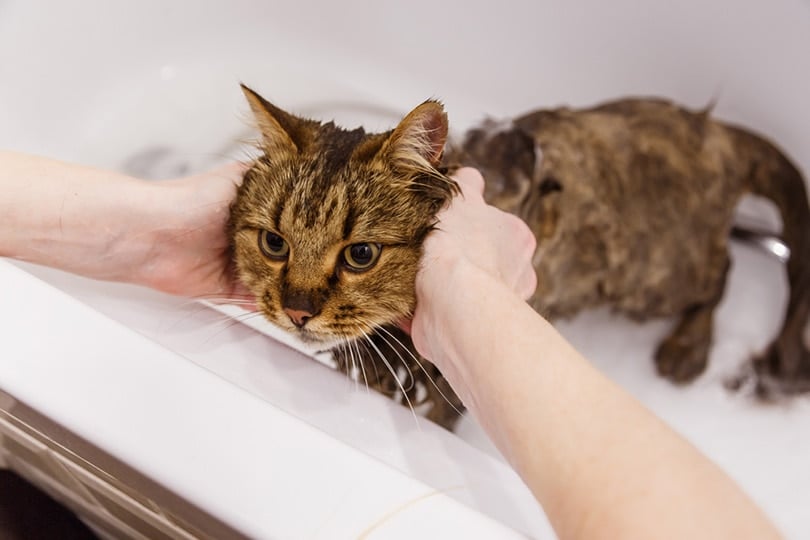
4. Give Your Cat Access to Plenty of Water
Water is one of the best things for an overheated cat, although most cats aren’t big water drinkers. Nevertheless, making sure your cat’s water bowl is always full is critical.
5. Rub Down Your Cat With a Damp Towel
When cats lick their fur to cool down, the process of evaporation is what does the job, with their saliva evaporating from their fur. If your cat is overheated, rubbing them gently with a damp towel will have the same effect in a much bigger and faster way, as their entire fur coat evaporates water and cools off simultaneously.
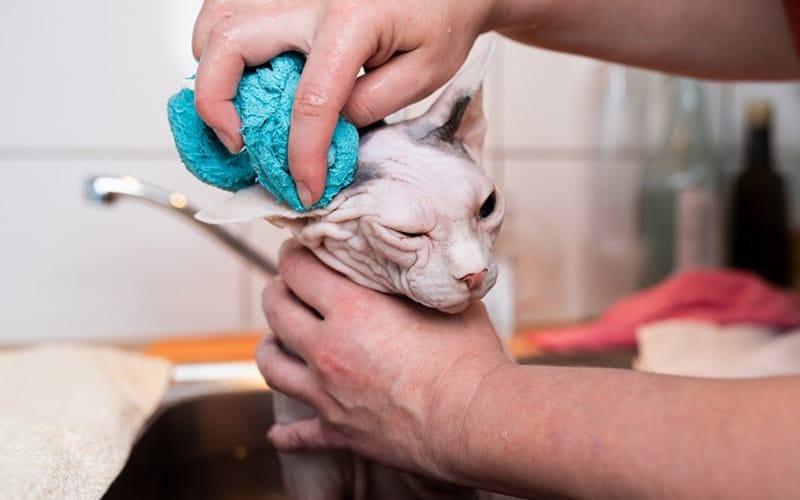
 The 3 Tips to Help Your Cat Stay Cool on Hot Days
The 3 Tips to Help Your Cat Stay Cool on Hot Days
One of the best ways to eliminate problems with heat for your cat is to stop them before they become problems. Most of the methods below will help you do that and keep your cat cool when the temperature starts to rise.
1. A Cooling Mat
Cooling mats do just what the name says and give your cat a place to sit and stay cool. Before using one for your cat, clip your cat’s claws so they don’t damage the cooling mat.
2. Give Them Fresh or Wet Food
Staying hydrated is a great way to beat the heat, but most cats drink far less than they should. The remedy is to switch from dry to fresh or wet food, which has a much higher moisture content.
3. Provide Your Cat With a Cool Space
Cats will do whatever they can to stay cool when it gets hot, so why not give them a place they can always count on to be cool? Somewhere in your home where there’s always airflow from a fan or open window is a great choice, with pillows and toys for them to get comfy.
If you have an outdoor cat, you need to do the same thing, especially if you don’t have a lot of shade in your yard. Putting up an umbrella or making a house for your cat to use are both excellent methods of providing an outdoor cat some much-needed shade.
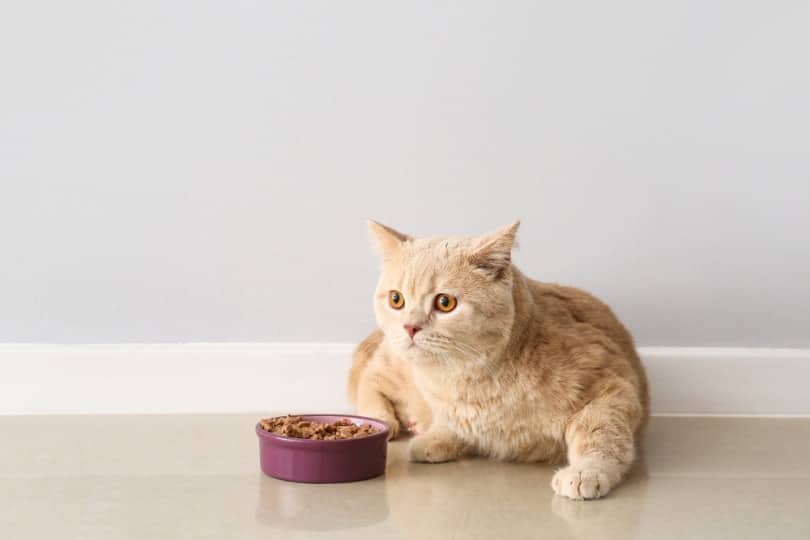
Final Thoughts
Cats cool down by panting and licking their fur and letting the resulting evaporation cool them off. Cats also seek cool indoor and outdoor areas and will seek out more water if they feel too hot. Depending on where you live, providing shade or a cool area for your cat might be necessary to prevent heat-related illnesses.
As summer approaches, you must keep your feline friends cool and comfortable, as high heat can be deadly for them. We hope you enjoyed the information provided today and have a better idea of how to help your cat stay cool when hot weather strikes.
Featured Image Credit: SJ Duran, Shutterstock

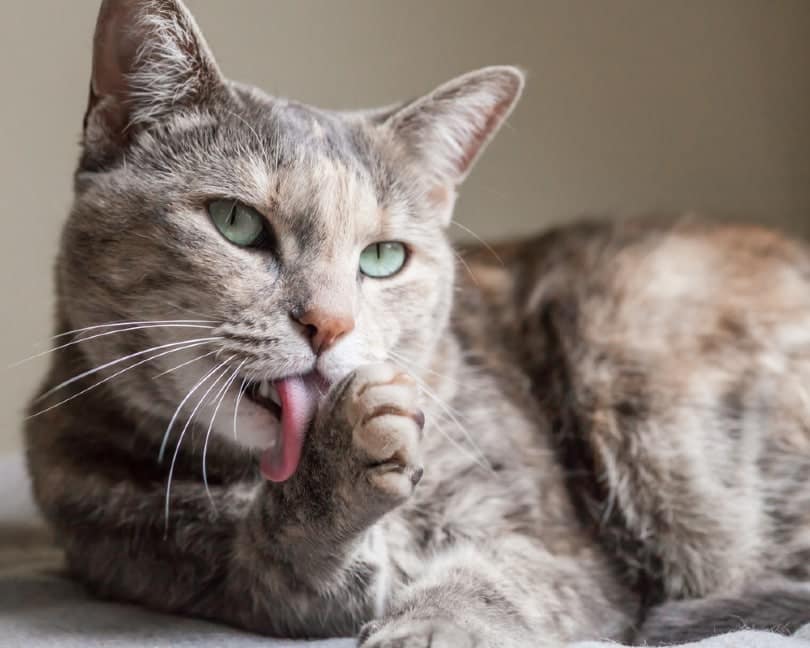
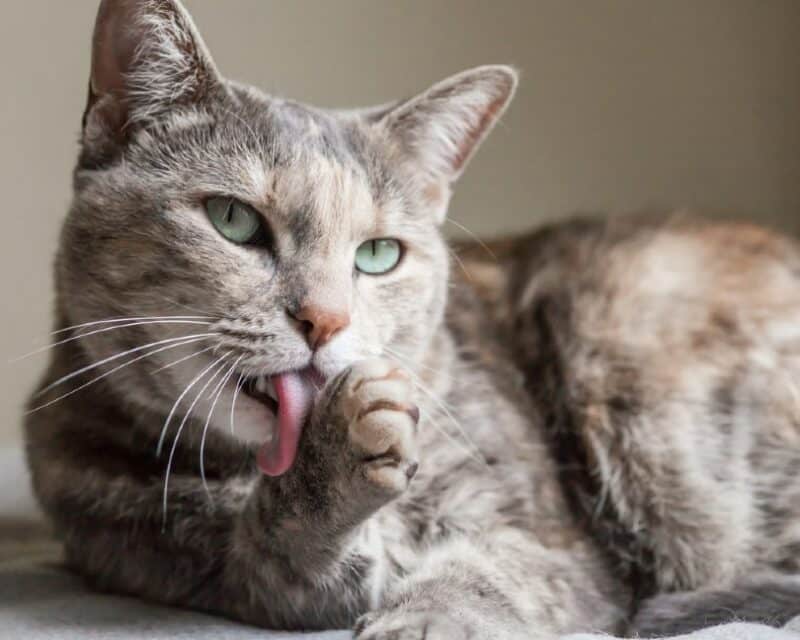

 What’s the Fastest Way to Cool Down an Overheated Cat?
What’s the Fastest Way to Cool Down an Overheated Cat? The 3 Tips to Help Your Cat Stay Cool on Hot Days
The 3 Tips to Help Your Cat Stay Cool on Hot Days







